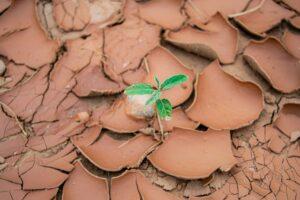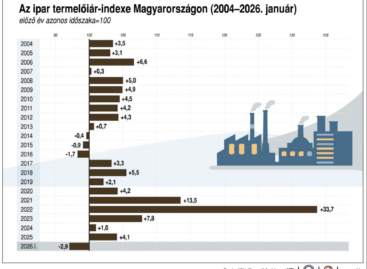Biodiversity Conference: Droughts causing damage of 300 billion euros per year on Earth
Global droughts are causing an estimated €300 billion (HUF 124 trillion) in annual damages, according to a UN report presented on the second day of the 16th Biodiversity Conference (COP16) in Riyadh, Saudi Arabia. The impact of desertification and droughts extends beyond environmental damage, significantly affecting global economies and quality of life.
Urgent Actions Needed
 The report highlights the need for substantial investments by 2050 to mitigate the effects of droughts. Key recommendations include:
The report highlights the need for substantial investments by 2050 to mitigate the effects of droughts. Key recommendations include:
- Reforestation: Forests play a crucial role in carbon sequestration and in preserving soil and water resources.
- Improved Soil and Water Management: Enhancing soil quality and optimizing water usage is essential for sustainable agriculture.
- Agricultural Advancements: More efficient farming methods can reduce losses and increase agricultural revenues, alleviating the impacts of climate change.
The measures proposed in the report would affect three-quarters of the global population, directly contributing to improved living conditions worldwide.
2024 Could Be the Hottest Year on Record
UN experts suggest that 2024 may become the hottest year in recorded history, accompanied by unprecedented droughts in regions such as the Mediterranean, Morocco, Namibia, Malawi, Ecuador, and Brazil. These conditions have led to wildfires, water shortages, and food insecurity, further straining affected communities.
Severe Economic and Social Consequences
Kaveh Madani, director of the UN University’s Water, Environment, and Health Institute, warned that droughts not only disrupt food supply chains and ecosystems but also jeopardize national GDP and economic stability. Over time, these damages could result in:
- Rising unemployment,
- Worsening hunger,
- Increased migration.
Leaders Must Act
Andrea Meza, the UN-appointed organizer of the COP16 under the Convention to Combat Desertification, emphasized that understanding the scale of drought-induced losses is not enough. World leaders must implement preventative measures that prioritize nature conservation while supporting sustainable human development.
Combating drought requires global collaboration and significant investments. The UN’s COP16 report underscores the urgency of addressing climate change impacts. Reforestation, sustainable farming, and efficient water usage are vital to securing future generations’ living conditions. Time is of the essence, and global leaders must act now to prevent further devastation.
Related news
How does the forint exchange rate affect consumer prices?
🎧 Hallgasd a cikket: Lejátszás Szünet Folytatás Leállítás Nyelv: Auto…
Read more >KSH: In January 2026, industrial producer prices were on average 2.9 percent lower than a year earlier and 0.9 percent higher than the previous month
🎧 Hallgasd a cikket: Lejátszás Szünet Folytatás Leállítás Nyelv: Auto…
Read more >The GKI business climate index rose in February
🎧 Hallgasd a cikket: Lejátszás Szünet Folytatás Leállítás Nyelv: Auto…
Read more >Related news
Focus on the domestic fishing sector at SIRHA Budapest
🎧 Hallgasd a cikket: Lejátszás Szünet Folytatás Leállítás Nyelv: Auto…
Read more >Where wheat turns into flour and data: this is how the domestic milling industry is digitizing
🎧 Hallgasd a cikket: Lejátszás Szünet Folytatás Leállítás Nyelv: Auto…
Read more >High-protein products are taking over
🎧 Hallgasd a cikket: Lejátszás Szünet Folytatás Leállítás Nyelv: Auto…
Read more >








